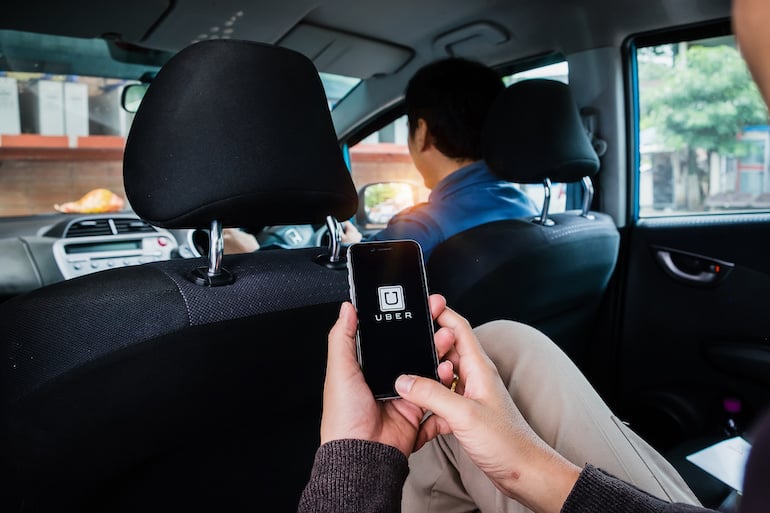US ride-sharing giant Uber has settled a class action by the Australian taxi industry on the eve of going to court, offering to pay $271.8 million in compensation.
Maurice Blackburn Lawyers began a class action against Uber in 2019 on behalf more than 8,000 taxi and hire car owners and drivers. The Victorian Supreme Court trail was due to commence today before Uber struck an in-principle deal over the weekend.
The agreement has yet to be finalised and ratified by the court.
Maurice Blackburn principal Michael Donelly said the figure will be one of the top five class action settlements in Australian legal history.
“Uber fought tooth and nail at every point along the way, every day, for the five years this has been on foot, trying at every turn to deny our group members any form of remedy or compensation for their losses,” he said.
“But on the courtroom steps and after years of refusing to do the right thing by those we say they harmed, Uber has blinked, and thousands of everyday Australians joined together to stare down a global giant.
“This case succeeded where so many others have failed. In Victoria, Queensland and Western Australia, cases were brought against governments and all of them failed. What our group members asked for was not another set of excuses – but an outcome – and today we have delivered it for them.”
It’s not known how much of the settlement figure will be kept by the lawyers, but typically, between 15% and 25% is retained as fees by the legal team, meaning $40 million-plus could be Maurice Blackburn’s payday.
The settlement figure is nonetheless a fraction of the billions in compensation state governments and consumers have paid to the taxi industry since Uber first began operating illegally in Sydney in 2013.
The former NSW Coalition government, which legalised Uber in the state in late 2015, upped its total compensation package to taxi licence holders in late 2022 by $260 million to $905 million in total.
The former transport minister bragged at the time that the total compensation was more than double the Victorian government package and more than nine times the Queensland government’s offer.
But to pay for it, NSW rideshare and taxi users were slugged with a 20% increase in the $1 passenger service levy (PSL) to $1.20 (ex GST), with the surcharge extended for another two years to the end of 2030. The PSL was originally first introduced in 2018 for a maximum of five years.
In a statement following the class action settlement Uber said it is now regulated in every state and territory across Australia.
“Since 2018, Uber has made significant contributions into various state-level taxi compensation schemes, and with today’s proposed settlement, we put these legacy issues firmly in our past,” the company said.
That past includes a $21 million fine for misleading users over cancellation fees and taxi prices in December 2022, $5m less than the $26m company originally agree to, and more recently a $412,500 fine for sending 2 million spam emails.
Based on the company’s filings, Uber may have ask dad for the cash to pay the class action settlement.
Back in 2018 Uber Australia Holdings, a subsidiary of the US business, which operates the rideshare and Uber Eats, generated total revenue was $935 million. It paid $691 million in “service fees” to the parent company, leaving it with a company tax bill of $8.5 million.
Fast forward five years and in 2022, revenue hit $2.64 billion, with $1.4 billion in costs, including delivery driver payments.
Uber spent $103 million on marketing that year, and $105 million buying the sharing economy startup Car Next Door. The “service fee” grew to $1.1 billion.
But after paying $14 million on income tax, it turns out life is tough in tech and the company made a profit of just $1.5 million – just 0.0005% of revenue.
Luckily, the parent company is now faring a little better and in February, reported a US$1.43 billion profit in the last three months of 2023, including US$1bn from equity investments. The business is now spending up to US$7 billion on a buyback of its stock.




















Trending
Daily startup news and insights, delivered to your inbox.